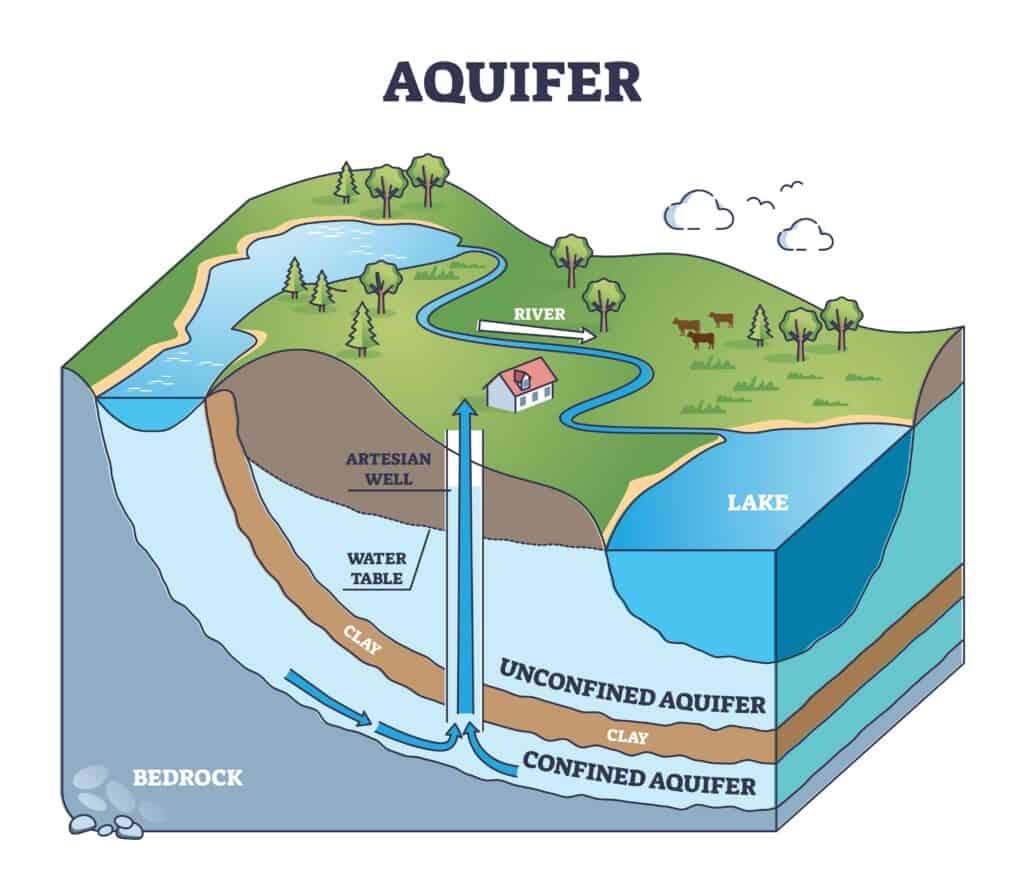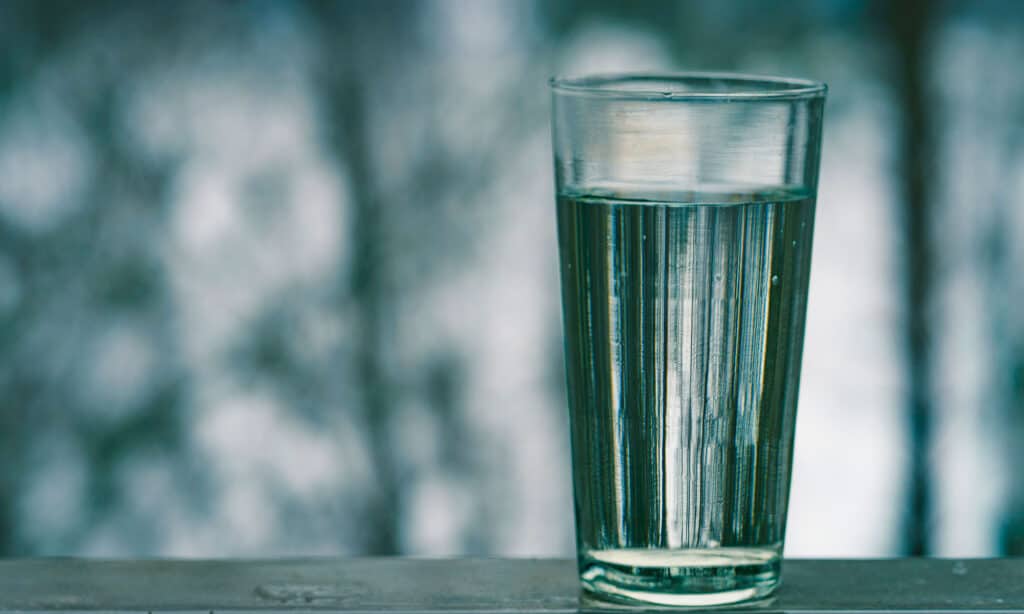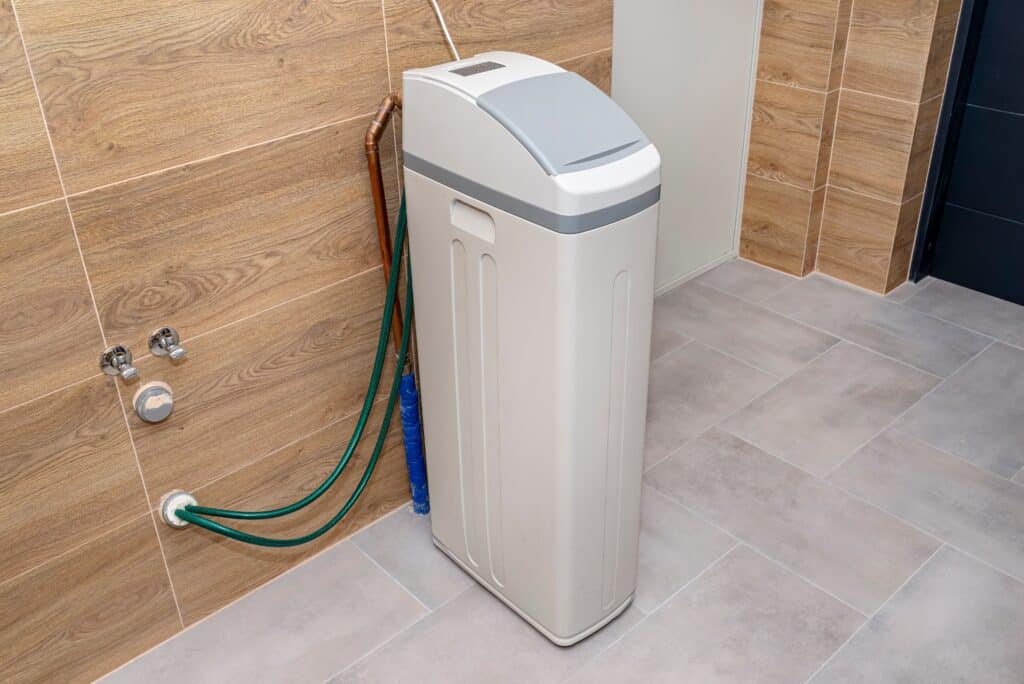Have you ever wondered why some water feels or tastes different than other types? If so, you may have come across the term “hard water.” But what is hard water? We’ll answer that question and more below.
Let’s dive in!
About Hard Water
Have you ever checked the chemicals in your pool or hot tub with a test strip? If so, then you may have seen the area where the strip tests for the hardness of your water. This is testing for the number of minerals in your water.
When your water measures on the high end of this spectrum, it means it contains an excess or otherwise high amount of minerals. A high amount of minerals is anything over 200 milligrams per liter, according to the World Health Organization (WHO). The minerals that can cause hard water include calcium, magnesium, and different types of metals.
What Causes Hard Water?
On the surface level, hard water is caused by excess minerals or metals.
However, how do these minerals end up in your water?
If you have well water, it can be a bit easier to identify the source of minerals in your water. Well water comes from an underground “lake” known as an aquifer. When it rains, the water seeps through the ground. Most of this water is absorbed by plants. However, some water continues through the ground until it reaches this aquifer. In this journey, it can pick up a lot of sediment depending on what types of rocks and soils it passes through. While much of this is filtered when it is drawn through the well system, some of the dissolved minerals may remain. This can lead to hard water.
The process is similar to municipal water, or water that comes from the city. However, once the water is drawn into a filtration plant, it has additional steps to undergo before it reaches your home for use.

The source of most well water is aquifers.
©VectorMine/Shutterstock.com
Is It Safe?
Although it is different than pure water, hard water isn’t hazardous. Not only is it safe for washing and cooking but also for drinking.
However, while it is considered harmless as far as drinking, there are some negative side effects of hard water. This includes damage to appliances, such as washing machines and irons; limescale on tubs and sinks; and other additional issues. It can also leave your skin and hair feeling dry after washing.

Hard water is safe for washing, cooking, and drinking.
©iStock.com/Yury Karamanenko
Benefits
Although hard water may seem like one of the biggest inconveniences for appliances, it actually does have some benefits. This has to do with its high mineral content.
There are many minerals that are essential for a healthy life. This includes calcium, iron, zinc, and many more. Many of these essential minerals can be found in water, and with hard water, they are found in abundance. As a result, drinking hard water can help contribute to the daily levels of minerals needed for a healthy life.
Because hard water has so many minerals, it also has more flavor than soft or pure water. This can make drinking the daily required amount of water easier.
Signs You Have Hard Water
Now, since you know a little bit more about hard water, how do you know if you have it? There are actually several signs that you can look out for.
Feeling Film After Hand Washing
If you have hard water, they may still not feel clean after you wash your hands. This happens as a result of the soap interacting with excessive amounts of calcium in your water. The best way to remedy this is by washing your hands for longer.
Quicker Wear and Tear on Clothes
As you may learn with your skin and hair, the minerals in hard water can make it harsh. This can cause your clothes to wear out faster after washing as it can be abrasive depending on the hardness level. You may also notice mineral stains on your clothes after washing.
Less Water Pressure
Think about a river filled with debris and sediment. At first, it may run at its normal rate. However, after a while, the solids in the water will begin to pile up in certain areas, which slows the river down.
The same can happen to your water over time when you have hard water. Mineral deposits can build up in your pipes, leading to reduced pressure.
How to Soften Hard Water
Although hard water is safe to drink, because of its effects on your clothes and appliances, you may want to seek ways to soften it. One of the best ways to do so is by investing in a filter that separates excess minerals from your water. Some hardware stores sell such filtration systems, which are designed to soften water. Before you make a purchase, first determine how many grains your system should be treated for.

A water-softening filtration system is an efficient means of softening your water.
©Kinek00/Shutterstock.com
The photo featured at the top of this post is © iStock.com/Yury Karamanenko
Sources
- World Health Organization, Available here: https://apps.who.int/iris/bitstream/handle/10665/70168/WHO_HSE_WSH_10.01_10_Rev1_eng.pdf
Thank you for reading! Have some feedback for us? Contact the AZ Animals editorial team.






